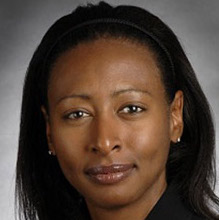 Despite representing roughly 12 percent of the U.S. adult population, Black professionals account for just 7 percent of the total workforce and 3 percent of executive teams in the biopharmaceutical industry. In an initiative designed to increase access to and awareness of the biopharma industry among Black talent and build a diverse talent pipeline, pharmaceutical-giant Bristol Myers Squibb announced a collaboration with five historically Black universities to launch “Tomorrow’s Innovators” — a multimillion-dollar strategic alliance to attract top HBCU-affiliated talent to the biopharma industry in the next five years.
Despite representing roughly 12 percent of the U.S. adult population, Black professionals account for just 7 percent of the total workforce and 3 percent of executive teams in the biopharmaceutical industry. In an initiative designed to increase access to and awareness of the biopharma industry among Black talent and build a diverse talent pipeline, pharmaceutical-giant Bristol Myers Squibb announced a collaboration with five historically Black universities to launch “Tomorrow’s Innovators” — a multimillion-dollar strategic alliance to attract top HBCU-affiliated talent to the biopharma industry in the next five years.
The five participating HBCUs are Florida Agricultural and Mechanical University, Howard University in Washington, D.C., Morgan State University in Baltimore, North Carolina Agricultural and Technical State University, and the University of Arkansas at Pine Bluff.
Through the “Tomorrow’s Innovators” alliance, Bristol Myers Squibb and the HBCUs seek to:
- Design and host specific career-focused workshops for diverse talent;
- Develop a two-way exchange program with commercial leaders and faculty members to facilitate knowledge sharing, collaboration, and research development opportunities; and
- Create custom biopharma curriculum to further prepare diverse students for internships and career opportunities within the biopharma sector.
 “The Tomorrow’s Innovators strategic alliance presents a meaningful opportunity to build the talent pipeline that will not only address the lack of representation in the biopharma industry, but also equip the industry to meet the challenges of the future,” said Danielle Winchester, associate dean in the Willie A. Deese College of Business and Economics at North Carolina Agricultural and Technical State University.
“The Tomorrow’s Innovators strategic alliance presents a meaningful opportunity to build the talent pipeline that will not only address the lack of representation in the biopharma industry, but also equip the industry to meet the challenges of the future,” said Danielle Winchester, associate dean in the Willie A. Deese College of Business and Economics at North Carolina Agricultural and Technical State University.
“At Bristol Myers Squibb, we believe that bringing innovative medicines to patients requires a workforce with diverse experiences, perspectives, and personal backgrounds that reflect the diverse patients and communities we serve around the world,” said Chris Boerner, executive vice president and chief commercialization officer at Bristol Myers Squibb. “While there is still more to do in addressing racial and societal equity, programs like Tomorrow’s Innovators provide a critical opportunity to reach diverse talent sooner and cultivate a richer talent pipeline within our industry.”

